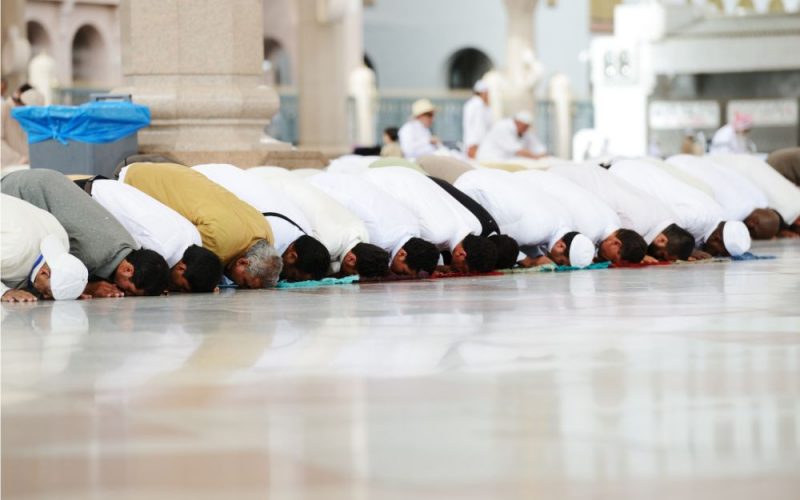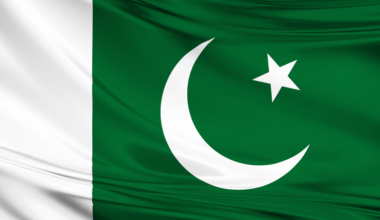The West and Islam have had an uneasy relationship for a very long time, which dates from even before the Muslims appeared on the world stage as the conquerors and led to the horrifying Crusades. Both developed a rhetoric against each other in order to define oneself by reviling the other.

While Europe was being carved up by warring feudal lords in the Middle Ages, Muslims were engrossed in recovering the intellectual heritage of Greeks and other civilizations in the libraries of Alexandria, Baghdad, Byzantine, and Asia. They translated immensely from Greek, Syriac, and other schools of learning and added to them with their commentaries. Later on this expansion was shared back with the European world. At that time Islamic civilization was the benchmark against which Europe measured itself. Europe experienced Muslims and their empire as a threat and was prone to viewing Islam as an entity that had to be discredited in its totality as barbaric and sham. However the world has since moved on and we live in a different world today where the West is the most developed and the leading economic and technological civilization in the world and Islam is the second largest and the fastest growing religion in the world. More than ever before, there is a vital need for both to understand honestly, thoughtfully, and decisively the relationship between events and conditions in the Islamic and the Western world and to desist from reciprocally reinforced stereotyping. Having said that, let’s begin with taking a look at the Muslim side of the equation. While looking for a response to the West’s medieval view of Islam as a barbaric civilization, Muslims can find a clue in the approach of China or India, who too were looked down upon till very recently. Extremism only reinforces prejudices and mindless collective human ego and continues to feed upon itself.

In countries like Pakistan -instead of harnessing all resources to combat poverty, social injustice, health problems, illiteracy, ethnic strife, and sectarianism- the conservative leaders have craftily managed to have people believe that their main problem is a Non-Muslim versus Muslim conflict. These leaders use this as an instrument to consolidate their status as the guardians of Islam and true patriots, thus castigating their opponents as American and Indian agents. Elsewhere in the Muslim world also, fundamentalists are convinced that the West wants the Muslims to remain weak and ineffective. They lead Muslims to believe that the West’s military dominance is only a small part of their designs to control the Muslim world and that the spreading of their culture among the Muslims is an even more worrying aspect. They believe that the popularity of the Western culture destabilizes Islamic values and thus impedes the revival of Muslim glory on the world stage. The fact that most of the Muslim governments are despotic and have failed to develop and modernize their institutions and states is another alibi for blaming our failings on the West. This means that while most Muslims are not opposed to modernism, they have been misled to believe that modernity with its tenets of democracy, human rights, women’s rights, religious freedom, freedom of expression, civil society, and pluralism is largely alien and not necessarily applicable to Muslim world.

Seeing this, one wonders how the nexus between Muslim fundamentalists and the West during the age of cold war has given way to general abhorrence for the West that is now common in the Muslim right. This abhorrence cannot be put to a hatred stemming from a colonial past or revulsion for the West’s neo-imperialism up to not very long ago because the clergy has often been in cahoots with the West in propping the West’s favourite rulers in Muslim countries. They also colluded with the West against some revolutionary leaders in the Muslim world. West’s overthrowing Mossadeqh in Iran with the connivance of a powerful clergy is a case in point. For most of the twentieth century Islamists were the willing recruits of the West to fight off the danger of communism. In fact Islamists’ aversion to the West is engendered by the fact that their philosophy and the societies they want to create cannot sustain an exposure to some of the current Western values like gender equality, freedom of expression, free-thinking democracy, and liberal human rights. While for them it seems a never-ending continuation of the Crusades, their recruits are mostly people who feel aggravated at finding themselves unable to contend with or contribute to today’s globalized world. These, often poorly educated, votaries are taught to believe that death, and not life, is to be celebrated where the highest level of worship consists in dying for a purported cause and leaving this material world behind to its nefarious designs. Not surprising that they wish death more than life.

The earliest strands of this outlook in modern thought can be seen in the philosophy of Muslim Brotherhood and the writings of some of the renowned early twentieth century Muslim scholars who urged the Muslims to wage armed jihad to establish the supremacy of Islam in the world. During the decades of the Cold War the West helped enforce and propagate this philosophy, thus creating hordes of brainwashed jihadis to fight the global war on godless communism. For several decades these jihadi groups were armed and used to fight against communists as well as nationalists in Muslim countries. During the Afghan War the mujahideen were feted on the lawns of White House and told that they would prevail because God was on their side. As Syria has now again demonstrated, when it comes to the emerging world the US led western countries often act as a bunch of hypocritical bully boys. We all know that Assad is a despot who has subjugated all dissent and has killed his opponents, but that is not the real game here. Syria is what happens when you refuse to get on board with Israel in the Middle East.

Muslims’ own approach to the world history and the aggressive media campaigns launched by their enemies have also contributed to push today’s Muslims to the wall. They seem more concerned with glorifying their past than adjusting to the present day realities. This collective anguish is so severe that a considerable part of the Muslim population can be seen acting it out in a continuous and absurd cycle of wailing and vengeance through which the frustration renews itself endlessly. In most other societies people have tried to desensitize themselves to the collective emotional trauma. Germany and Japan are the prime examples in the present day world. So are China and Vietnam. Jews, who have been mercilessly persecuted over many centuries, are also making an effort to come to terms with an agonizing history. So are Native Americans who were decimated and destroyed by the European settlers. The Blacks, who were uprooted and forced into slavery up to not very long ago, are also making an effort to dissociate themselves from a painful past and to make progress in today’s world. We too need to be able to consider the ruinous implications of ignorance and of the perpetuation of discourses of hatred which foil hopes of lasting peace, security, and justice for Muslims and non-Muslims alike in an irreversibly interdependent global world. It is only after the Muslims have been able to dissolve their victim identity and false notions of supremacy that their true power will emerge which -given their genetic diversity, geographic reach, and the natural resources they control- promises to be enormous.

In Canada and the US, I come across a number of Muslims who were born here as citizens but pass all their time denigrating the West and its moral values as evil. No wonder most of them have studied physical sciences -and are doctors, engineers, and computer scientists- and their beliefs are anchored in the assuredness and certitude that stems from studies and professions rooted in empiricism. This however does not stop them from benefiting from the advantages and comforts of the Western society. While these people usually have a moderate attitude towards life and religion, their outlook, nevertheless, represents current intellectual and theological thinking in Islam. Instead of developing an outlook that is based on an informed understanding of Islam in its current and multicultural context as evolving to address the needs and issues of modern age in a way that is spiritually correct, they often adopt an approach that negates progress and diversity by becoming more conservative and isolationist. The quest for identity is a normal phenomenon in the struggle of a generation for a place in the dominant society, but the rigid manner in which this quest for identity often gets distorted –especially post 9/11- is surprising. In my experience in Canada this mostly concerns young people. It is a pity to imagine the identity dilemma of these kids brought up in a Western environment who have been encouraged by parents, tight groupings, and extended family to dis-identify with ‘Western’ cultural and political contexts and to imagine themselves as being from somewhere else (Iraq, Palestine, Bangladesh, Pakistan etc.) Some of this is a natural phenomenon as the struggle of a new generation to find a place in a dominant society, though made more conspicuous by the fact these Muslim youth of immigrant parents are more ‘diverse’ in colour, names, religion, and culture than most other immigrants. What further exacerbates it is that on one hand the political situation in the West since 9/11 constructs Islam as an enemy and on the other hand at home these kids are given lessons in a litany of injustices of the West against Islam. Sometimes ‘identity Islam’ is also pursued as a refuge from the perceived or real ‘racial rejection’. No wonder the idea that they are in fact the superior ones, and different from the morally corrupt and evil society around them, rings pleasant to some of these young ears whereas their parents feel smug that they have resolved the immediate threat of assimilation into Western culture by keeping their youth on the right path and proud of it. Little do these parents realize that by abetting the process of this simultaneous alienation from the Western culture and from the culture of their idealized place of origin, they are setting up their kids for the embrace either of a culture-free Islamic militancy or of crime and drugs.

Quite often they are also not willing to acknowledge that the real disempowerment that their brethren in Muslim countries suffer is at the hands of their harshly totalitarian regimes (which often espouse secularism but reject democracy and freedom), corrupt rulers, and hidebound and intolerant religious leaders. Little wonder that sometimes this disempowerment is compensated for by fanatic and militant fundamentalist groupings whose ideology is a heady mixture of internationalist Islamic philosophy, political ambitions, power struggle, anti-neo-colonialism, and traditionalist religious revivalism. They thrive on a rhetoric predicting Islam’s victory over the West and other infidels. Their discourse is full of disparaging tropes of the ‘malevolent West’ and the conspiracy theories and paints a harrowing image. Islam is presented as a panacea for all Muslim needs and concerns and everything un-Islamic is portrayed as immoral, worldly, and corrupt. These groups, although representing minority sections of population everywhere, have given credibility to negative typecasts of Islam for propagating their self-serving scathing rhetoric against the West and, in some other areas, other non-Muslims.

Even though the two civilizations have followed different historical paths, Islam’s basic principles are not contradictory to the modern liberal democracy and pluralism espoused by the West. I think, instead of feeling threatened, the Muslims should learn to examine the Western cultural practices under the guidance of Islam’s moral and ethical values and endeavour to adopt the best of these practices. The ideas of democracy and human rights are in conformity with Islamic thought and reverberate in quite a few notions of government and politics in Islamic religious and political thinking. Medieval Islamic philosophy and jurisprudence were richer than other contemporary thoughts in postulating and protecting individual and collective human rights and accommodating religious, political, racial, social, economic, and intellectual differences. The Muslims should realize that Islam was the first religion to properly define and codify the civilising values of justice, equity, women’s and minorities’ rights, contractual rights and obligations, honesty, diligence, etcetera. It is just that the West has been the first to manage a universal espousal of these values, which has placed it in the forefront of civilization in the contemporary world. Thus it is fallacious to define Islam in reaction to the West or to depict the West as the antithesis of Islam. As a belief system also Islam should be compared with other religions and not with modern Western states. There is no confrontation between Islam and the West’s institutions and systems. They are not mutually exclusive and there are enough Islamic arguments for adoption of human rights, pluralism, and democracy. Any conflicts between the constituents of the Muslim world and the West are actually political or economic and not religious or even cultural. The two have common monotheistic ground on which multicultural cooperation and religious co-existence can be built. (Canada is one such good example.)

In order to be able to reconcile Islamic traditions with the modern world we need to understand that, in the times of Prophet and the decades that followed, neither the human history reached its pinnacle nor Islam attained the height of its potential. In fact, the human advancement continues to march on in all its majesty and Islam’s potential is eternal and its fulfilment everlasting. By reviewing classical and medieval Islamic thought in the light of current political, social, economic, and religious considerations we can ensure an epistemological break with the past and provide the Muslim world with a common ground with the world. In many Muslim countries from Morocco to Indonesia, the masses display a rising quest to seek liberation and transparency through democracy, inclusion and tolerance through pluralism, and respect and protection through human rights. I am optimistic that, in due course of time, this trend will be able to bridge the gap between the Muslims and the Western world. However, for this to happen, the West must sincerely support the quest for democracy and pluralism anywhere (and not just in Iran and Syria) in the Muslim world, instead of supporting unrepresentative, autocratic, and tyrannical regimes that ensure stability and protection of Western interest in the short run. The West’s strategic notions that the Muslim world can be kept away from its borders and can be kept under check by the authoritarian regimes doing the West’s bidding were flawed from the beginning and have now been proved fallacious.

The writer is the author of four books that can be seen at https://www.amazon.com/Asif-Zaidi/e/B07J2S7R11







